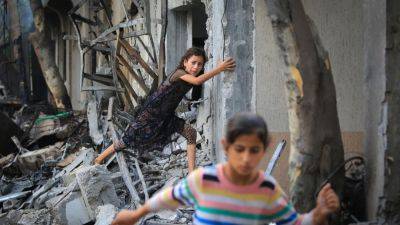Why the Gaza war is tearing the West apart
The recent Gaza war protests and counterprotests roiling universities around the world have attracted vocal supporters and critics alike. Protesters have occupied buildings on campuses from Los Angeles to Paris to Melbourne, and police have intervened to break up encampments, at times with violent altercations.
Clashes between pro-Israel and pro-Palestinian protesters have also become commonplace outside universities, while people on both sides of the debate have been subjected to doxing, harassment and abuse.
US President Joe Biden warned of a “ferocious surge” of antisemitism in the United States, while the Australian government has established an inquiry to report on racism at universities. Hate crimes are on the rise across Europe, as well.
What’s going on? Why has this issue over the war in Gaza – compared to all the other controversies and crises we face – become so fraught, and the debate so toxic?
There are some straightforward reasons why the Gaza war attracts attention and activism.
Both sides (Hamas and the Israel Defense Forces) have committed acts that prompt allegations of the most serious moral charges imaginable: genocide, slaughter, war crimes. These are atrocity crimes: among the worst things humans can do to one another.
Israel and Palestine also have a long and complex history. Any given act can – and perhaps must – be viewed in the context of prior provocations, offers and grievances. There are also starkly different readings of that history.
The immediate future raises enormous moral stakes, as well. For its part, Israel aims to safeguard itself from subsequent atrocities and to free its hostages.
For Palestinians, the stakes are almost unimaginably high. There is the civilian cost of the current







